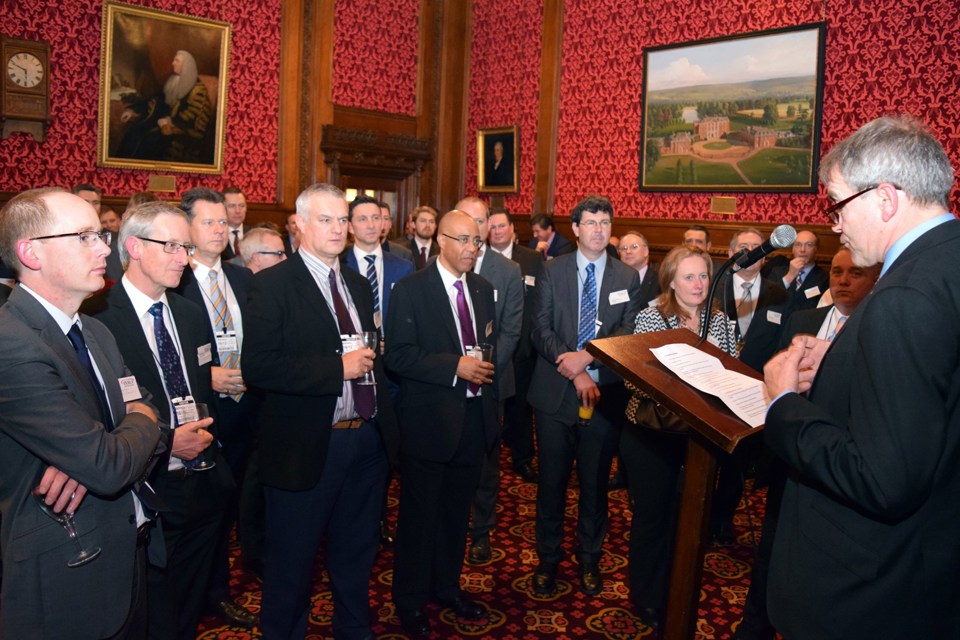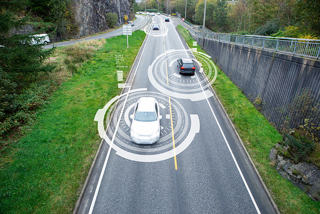Policies central to Thatcham Research gained high-profile recognition in a series of recommendations made by the fleet industry to the Government.
The British Vehicle Rental and Leasing Association (BVRLA) presented transport minister Robert Goodwill and other MPs with policy recommendations at a Parliamentary reception in the House of Commons.
In it, the BVRLA called on the Government to encourage the take-up of autonomous emergency braking (AEB) and consider making fitment of this technology mandatory for new vehicles – a proposal endorsed by Thatcham Research, which says that active safety systems like AEB, are proven to reduce crash claims by 38%.
In response, Goodwill told delegates: “I was interested to see your strong support for autonomous emergency braking.
"This technology has great potential for increasing road safety. The good news is that progress is already happening.”
He added: “The European Union has made AEB mandatory for heavy vehicles such as lorries, and I have been encouraged by what has happened in the US where, in September, 10 of the top car manufacturers voluntarily agreed to install the braking technology in all future car models sold in America.
“The market, helped along by demands from buyers, and perhaps some gentle encouragement from Government, is getting us to near-universal adoption of autonomous emergency braking technology far quicker than we could draft, propose, debate and pass new laws.”
He also acknowledged a recommendation that the Government adopts a requirement that its own vehicles should have a five-star Euro NCAP rating – a move championed by Thatcham Research in proposals put to the Department for Transport and Highways England.
Goodwill added: “We are currently looking at this very question - of how to best include NCAP ratings into the official Government buying standards and your recommendation is a very welcome contribution to that process.”
Peter Shaw, chief executive of Thatcham Research, said: “As a not-for-profit research organisation with a focus on vehicle safety and security, we see leadership of this nature as fundamental to the overall success in addressing deaths and serious injuries on the UK’s roads.
"Where the Government and its agencies lead, suppliers and other commercial organisations will follow.”
On intelligent mobility, Goodwill agreed the need for a common set of standards for the industry and consumers, and has asked the Centre for Connected and Autonomous Vehicles (C-CAV) – funded by the Government - to work with the British Standards Institute, the Intellectual Property Office and the Government Office for Science.
Shaw added: “Connected vehicle technology provides the basis for many emerging driver assistance and comfort systems.
"With a wide range of new stakeholders moving into the automotive space alongside the more traditional vehicle manufacturers, it is critical to quickly establish a set of robust standards and protocols that everyone can agree and work to.
"A fragmented approach could derail progress.”

















Login to comment
Comments
No comments have been made yet.